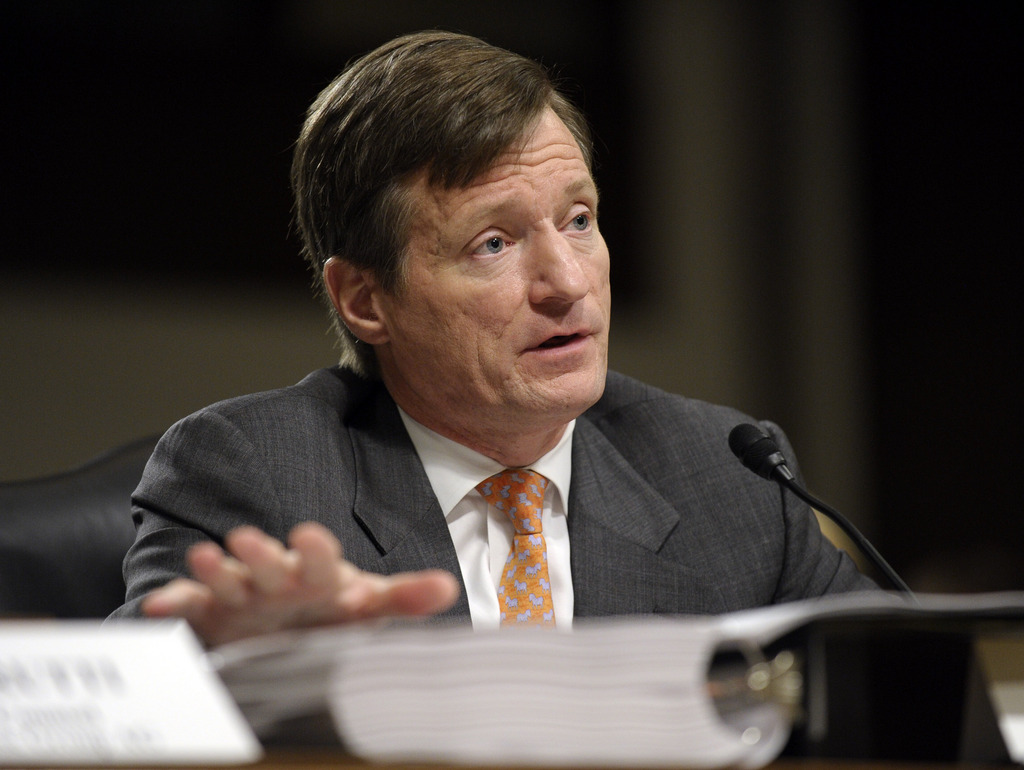Hoeness case part of ‘painful’ change for bankers

Former Bayern Munich boss Uli Hoeness may be the man sentenced to a term in jail, but court room revelations of how bankers helped him to cheat the German tax authorities have also put the Swiss financial centre on trial.
The Munich court heard that Hoeness opened his Vontobel account in 1975 after being charmed by a banker during a trip to the Swiss resort of Lenzerheide. Hoeness later used the bank to indulge in an orgy of risky trades – numbering up to 300 a day – that saw him rack up millions in losses.
Local media are at a loss as to understand how a financial markets amateur such as Hoeness could have been allowed to gamble so prolifically with such complicated trades.
Such lurid details follow on from a United States Senate hearing into the behaviour of some Credit Suisse bankers who helped clients evade taxes and other criminal investigations. Casino banking, diamonds being smuggled in toothpaste tubes, bank staff flouting US visa regulations by courting clients whilst on ‘holiday’: this is not the conservative, reliable, discrete image that Swiss private banks want to portray.
Hoeness appears to have already been forgiven by thousands of football fans despite admitting to cheating his country out of €27 million (CHF33 million) in taxes. But it might take Swiss banks more time to restore their reputation following a welter of details chronicling greed and deception.
“The past will probably continue to haunt the Swiss banking sector for a long time,” Martin Janssen, a professor at the University of Zurich’s Institute for Banking and Finance, told swissinfo.ch.
Ironically, the bad press continues to arrive as Switzerland implements a so-called Weissgeld (or clean money) strategy for its financial centre. But the stated good intentions of banks to weed out tax dodgers in future is being overshadowed by dubious past behaviour.
“All these cases are linked to attempts by the Swiss financial centre to resolve problems from the past,” Cindy Schmiegel-Werner, spokeswoman for the Swiss Bankers Association, told swissinfo.ch. “This is obviously going to be a painful process for Swiss banks, but it is something they will just have to go through.”
Since the 2008 financial crisis, Swiss banks have come under constant pressure from the international community to clean up its act and no longer accept tax evaded assets.
In 2009, UBS bank was fined $780 million and later forced to hand over thousands of client names to the US.
Some 14 other banks are still under active US investigation. Last year Wegelin and Bank Frey ceased operations under the weight of the probe.
Credit Suisse is the next big target of the US authorities, with a Senate subcommittee hearing summoning CEO Brady Dougan to a hearing last month and presenting evidence of wrongdoing by bank employees.
The Swiss banking sector was also last year implicated in the tax evasion offences of former French budget minister Jerome Cahuzac.
The German and French authorities have bought CDs of stolen Swiss banking data to help them uncover tax cheats. Some of this data has been passed to other countries.
The Swiss government has already agreed to renegotiate dozens of bilateral tax agreements with other countries under pressure from the Organisation for Economic Cooperation and Development.
Switzerland has ditched its legal distinction between tax fraud and evasion, now giving both offences equal weight under the law.
The Alpine country is also cooperating with efforts to introduce a globally harmonized version of automatic tax information exchange in the future.
Reforms
For anti-tax evasion campaigner Nicholas Shaxson, a member of Tax Justice Network who used to live in Zurich but who now resides in Germany, the facts that are emerging from investigations are just as important in Switzerland as they are to the outside world.
“There used to be a fundamental lack of questioning in Switzerland about the activities of the financial centre,” he told swissinfo.ch. “But these stories appear to have shifted some domestic opinion that private banking in Switzerland has in fact been a dishonourable business.”
Banks have committed themselves to enhanced due diligence measures to ensure that they know their clients and force them to prove that their assets have been declared to the tax authorities of their home countries. Any existing client who refuses to comply with these demands risks having their account closed.
In addition, the Swiss government is cooperating with an international drive to introduce a global standard automatic exchange of tax information designed to weed out tax cheats wherever they go.
According to Shaxson, Swiss banks still have some way to go to become fully tax compliant and to eradicate Switzerland’s image as a tax haven.
“The global community used to regard tax havens as an exotic side-show, but since the financial crisis [of 2008] they have become reviled,” he said. “This has forced Switzerland into a defensive retreat, but this has been restricted to bilateral deals with powerful countries.”
“If Switzerland is serious about reforming, it will get rid of banking secrecy.”
New clients
But despite the slew of negative stories, offshore assets continue to flood into Switzerland. The CHF2.2 trillion ($2.5 trillion) of foreign money in Swiss vaults amounts to a quarter of all cross-border private banking deposits around the world.
The SBA expects Swiss banking know-how, honed from centuries of application, to continue to attract the same share in years to come. And the assets withdrawn by European clients to escape tax prosecution from their home countries has swiftly been replaced by Asian inflows.
“Swiss private banks are putting in enormous efforts to retain client trust,” Bank Sarasin analyst Rainer Skierka told swissinfo.ch. “Not many banks around the world are able to provide comparable asset management professionalism, especially in countries lacking legal safety.”
“The further away from Switzerland you go, you see less impact from the discussions surrounding black money.”

In compliance with the JTI standards
More: SWI swissinfo.ch certified by the Journalism Trust Initiative











You can find an overview of ongoing debates with our journalists here . Please join us!
If you want to start a conversation about a topic raised in this article or want to report factual errors, email us at english@swissinfo.ch.